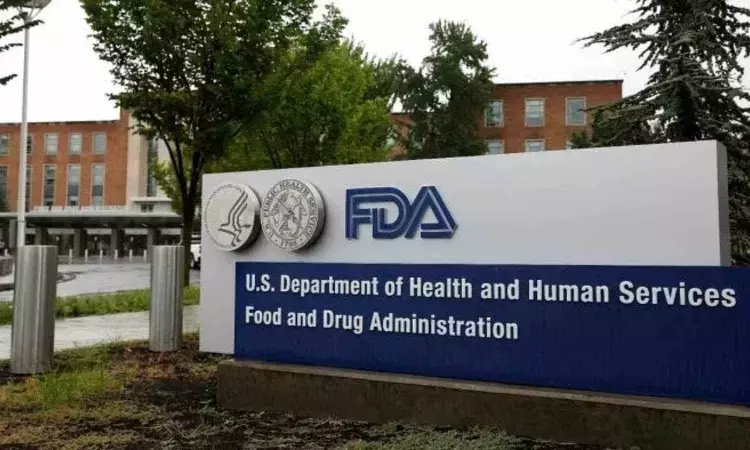- Home
- Medical news & Guidelines
- Anesthesiology
- Cardiology and CTVS
- Critical Care
- Dentistry
- Dermatology
- Diabetes and Endocrinology
- ENT
- Gastroenterology
- Medicine
- Nephrology
- Neurology
- Obstretics-Gynaecology
- Oncology
- Ophthalmology
- Orthopaedics
- Pediatrics-Neonatology
- Psychiatry
- Pulmonology
- Radiology
- Surgery
- Urology
- Laboratory Medicine
- Diet
- Nursing
- Paramedical
- Physiotherapy
- Health news
- Fact Check
- Bone Health Fact Check
- Brain Health Fact Check
- Cancer Related Fact Check
- Child Care Fact Check
- Dental and oral health fact check
- Diabetes and metabolic health fact check
- Diet and Nutrition Fact Check
- Eye and ENT Care Fact Check
- Fitness fact check
- Gut health fact check
- Heart health fact check
- Kidney health fact check
- Medical education fact check
- Men's health fact check
- Respiratory fact check
- Skin and hair care fact check
- Vaccine and Immunization fact check
- Women's health fact check
- AYUSH
- State News
- Andaman and Nicobar Islands
- Andhra Pradesh
- Arunachal Pradesh
- Assam
- Bihar
- Chandigarh
- Chattisgarh
- Dadra and Nagar Haveli
- Daman and Diu
- Delhi
- Goa
- Gujarat
- Haryana
- Himachal Pradesh
- Jammu & Kashmir
- Jharkhand
- Karnataka
- Kerala
- Ladakh
- Lakshadweep
- Madhya Pradesh
- Maharashtra
- Manipur
- Meghalaya
- Mizoram
- Nagaland
- Odisha
- Puducherry
- Punjab
- Rajasthan
- Sikkim
- Tamil Nadu
- Telangana
- Tripura
- Uttar Pradesh
- Uttrakhand
- West Bengal
- Medical Education
- Industry
USFDA Suspends Ixchiq Chikungunya Vaccine License Citing Encephalitis Death, 20+ Serious Adverse Events

New Delhi: The U.S. Food and Drug Administration (USFDA) has suspended the biologics license of Ixchiq (Chikungunya Vaccine, Live), manufactured by Valneva Austria GmbH, following serious safety concerns that the vaccine is causing chikungunya-like illness in recipients.
The suspension was announced by the FDA’s Center for Biologics Evaluation and Research (CBER) on August 22, 2025. Ixchiq was initially approved under the accelerated approval pathway in November 2023 for preventing chikungunya virus (CHIKV) infection in individuals aged 18 years and older who are at increased risk of exposure.
CBER stated that its decision was driven by severe safety issues. According to the FDA:
“CBER’s decision is based on serious safety concerns related to the vaccine, which appears to be causing chikungunya-like illness in vaccine recipients. There has been one death from encephalitis directly attributable to the vaccine (CSF PCR was + for the vaccine strain of the virus) and over 20 reported serious adverse events that were consistent with chikungunya-like illness.”
The reported adverse events included 21 hospitalizations and three deaths. The FDA further noted:
“Furthermore, the clinical benefit of the vaccine has not yet been verified in confirmatory clinical studies. CBER’s benefit-risk analysis broadly shows the vaccine does not have benefits outweighing risks, under most plausible scenarios. For these reasons, CBER believes this vaccine is not safe and that continued administration to the public would pose a danger to health.”
Prior to this suspension, FDA had taken multiple interim regulatory actions on Ixchiq.
On May 9, 2025, the FDA and CDC jointly recommended a pause in the use of Ixchiq in individuals 60 years and older, citing postmarketing reports of neurologic and cardiac events.
On August 6, 2025, the FDA lifted that pause but mandated updated labeling that included revised indication, limitations of use, and enhanced warnings about serious postmarketing adverse reactions, including encephalitis and hospitalizations in elderly patients with chronic conditions.
Ixchiq contains a live, weakened version of the chikungunya virus. Since approval, postmarketing surveillance indicated that the vaccine could cause severe or prolonged chikungunya-like adverse reactions. The FDA highlighted that:
“Some of the postmarketing reports include adverse events that are consistent with severe complications of chikungunya disease, resulting in hospitalization; one person died from encephalitis.”
The vaccine was approved in November 2023 with a clear prescribing warning that it may trigger severe or prolonged chikungunya-like illness.
The FDA has reiterated that ensuring vaccine safety remains a priority. It urged healthcare professionals and patients to report suspected adverse events to the Vaccine Adverse Event Reporting System (VAERS), which is jointly managed by the FDA and CDC.
“Continuous monitoring and assessment of the safety of all vaccines remains an FDA priority.”
M. Pharm (Pharmaceutics)
Parthika Patel has completed her Graduated B.Pharm from SSR COLLEGE OF PHARMACY and done M.Pharm in Pharmaceutics. She can be contacted at editorial@medicaldialogues.in. Contact no. 011-43720751


